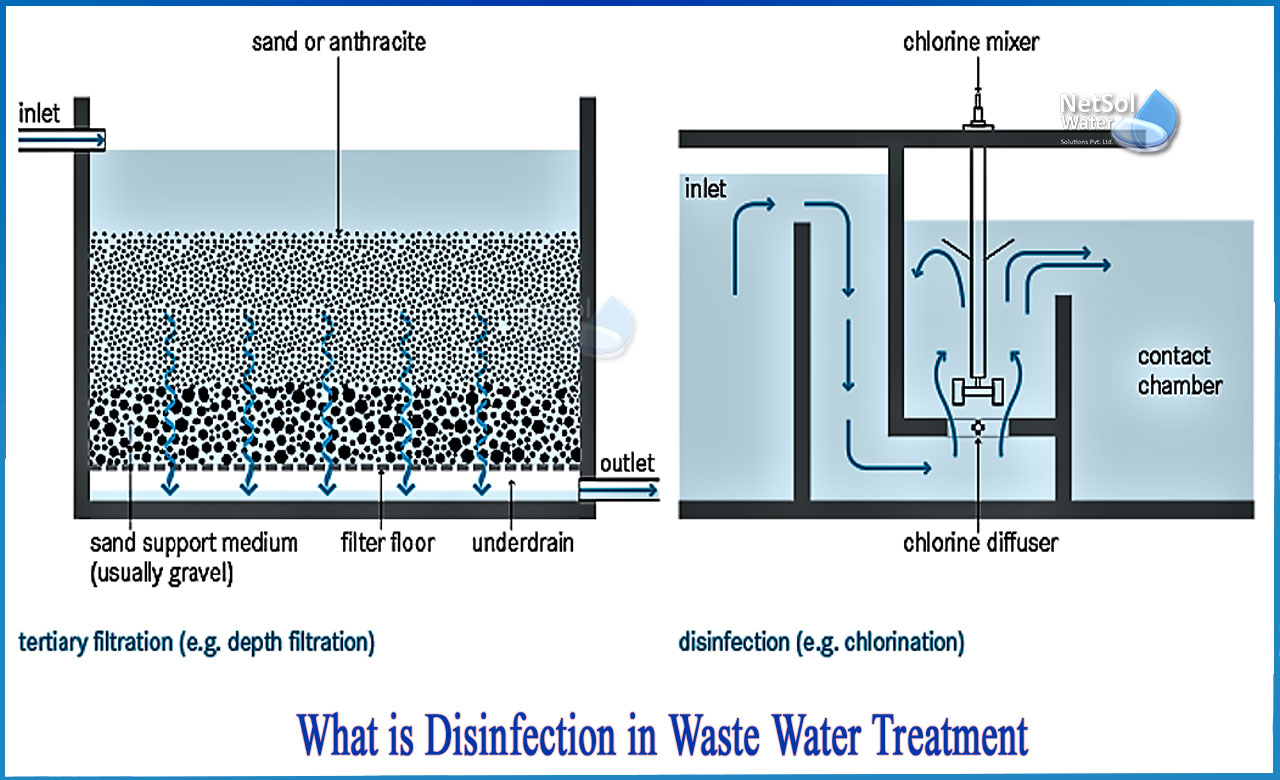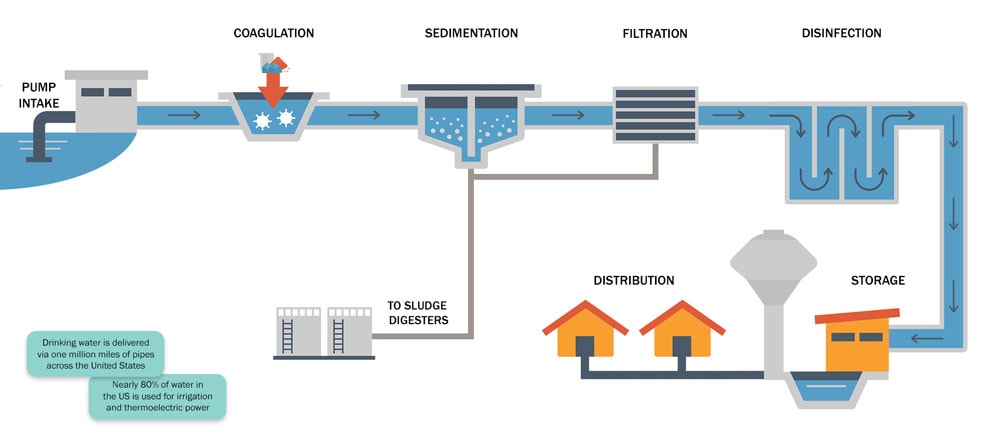Water Technology Startups and Sustainability: Creating Real-World Solutions
Exploring Water Technology Startups: How They Reinvent Sustainable Solutions
Water Technology start-ups are arising as important gamers in the mission for lasting solutions to global water concerns. These firms leverage cutting-edge innovations to enhance water performance and management. Their payments attend to pressing challenges such as shortage and contamination. Regardless of their possibility, they encounter numerous obstacles that can influence their success. Comprehending these characteristics drops light on the future of water sustainability and the duty these start-ups may play fit it.
The Value of Water Technology in Today's World
As international water scarcity intensifies, the importance of water Technology becomes increasingly noticeable. Water Technology plays an essential role in resolving the obstacles postured by raising and diminishing freshwater resources demand. It encompasses a broad range of innovations, consisting of innovative filtering systems, wastewater treatment technologies, and clever watering remedies. These innovations not just improve the efficiency of water use however likewise promote lasting techniques throughout numerous markets, consisting of agriculture, sector, and urban development.
In addition, the value of water Technology expands beyond resource administration. It fosters strength versus climate adjustment impacts, such as floodings and dry spells, by giving adaptive solutions for water conservation and administration. In addition, it sustains public wellness by making certain accessibility to clean and safe alcohol consumption water. As the world deals with growing water-related obstacles, the integration of sophisticated water innovations is crucial for cultivating lasting advancement and safeguarding water availability for future generations.
Ingenious Solutions From Water Technology Startups
While typical approaches to water management have actually offered their purpose, a new age of water tech startups is changing the sector with cutting-edge services (Water Technology Startups). These firms leverage cutting-edge innovations to attend to pushing water problems, such as scarcity, contamination, and ineffective distribution. Several start-ups utilize man-made knowledge and artificial intelligence to optimize water usage and predict demand, resulting in even more sustainable techniques
In addition, a number of firms focus on developing sophisticated purification systems that remove toxins and make water safe for usage. Others check out decentralized water therapy modern technologies, enabling communities to handle their water sources better. In addition, some start-ups are pioneering clever watering solutions that reduce water waste in farming, promoting ecological preservation.
Case Researches: Effective Water Technology Startups
Countless water Technology start-ups have become leaders in dealing with worldwide water difficulties with ingenious strategies. One remarkable instance is Xylem, which focuses on water analytics and clever framework to maximize water usage and decrease waste. Their options have been carried out in numerous districts, showing significant renovations in water management effectiveness.
One more effective startup, No Mass Water, has actually developed solar-powered hydropanels that remove water vapor from the air, supplying lasting alcohol consumption water in arid areas. Water Technology Startups. This Technology has been released in numerous nations, guaranteeing neighborhoods have access to clean water
Lastly, AquaVenture Holdings runs a varied portfolio of water-as-a-service solutions, attending to water deficiency via desalination and wastewater treatment. Their jobs have actually shown crucial in regions encountering serious water shortages, showcasing the capacity of innovative water technologies to create long lasting, favorable impacts. These case research studies highlight the transformative potential of startups in the water Technology field.
The Function of Smart Technology in Water Administration
Smart Technology plays an important role in modern water management by leveraging IoT applications to optimize source usage. Information analytics enhances performance by offering actionable understandings, while remote monitoring remedies allow real-time oversight of water systems. Together, these advancements transform just how water is handled, advertising sustainability and operational performance.
IoT Applications in Water
As water scarcity and management difficulties increase around the world, the integration of Net of Points (IoT) applications has actually become a crucial service in enhancing water resources. IoT Technology helps with real-time monitoring and evaluation of water systems, making it possible for extra efficient usage and administration. Sensing units deployed in numerous water infrastructures can track quality, circulation rates, and leakage, supplying beneficial data to stakeholders. This information encourages consumers and utilities to make informed decisions, lowering waste and enhancing preservation efforts. Furthermore, smart watering systems utilize IoT to enhance water shipment for agriculture, making certain that crops obtain the appropriate quantity of water at the ideal time. On the whole, IoT applications are changing traditional water monitoring practices, fostering sustainability and durability in water resource systems.
Information Analytics for Effectiveness
Utilizing information analytics is essential for boosting performance in water management. Water Technology startups are increasingly using advanced analytics to enhance resource allotment and reduce waste. By evaluating data from numerous resources, these startups can determine patterns and trends that educate far better decision-making. For example, predictive analytics can forecast water demand, enabling utilities to change supply accordingly, therefore reducing scarcities and excess. Additionally, real-time information processing makes it possible for the immediate discovery of leakages and ineffectiveness within distribution systems, greatly minimizing operational prices. Moreover, data-driven understandings empower stakeholders to execute targeted conservation approaches, fostering lasting practices. Basically, incorporating information analytics into water monitoring not just improves operations yet likewise promotes lasting sustainability in water source use.
Remote Tracking Solutions
While conventional water management systems usually have problem with inefficiencies, remote surveillance solutions are changing just how water sources are taken care of. These ingenious innovations allow real-time information collection and evaluation, permitting stakeholders to monitor water quality, circulation prices, and use patterns from afar. Utilizing sensors and IoT gadgets, remote monitoring offers immediate understandings that assist in proactive decision-making. This shift not just boosts functional performance yet additionally promotes sustainability by minimizing water waste and enhancing source appropriation. Additionally, remote surveillance systems can determine possible issues before they escalate, consequently reducing the threat of contamination or facilities failing. As water Technology start-ups continue to develop these solutions, the sector is poised for considerable improvements in sustainable water management practices.
Challenges Facing Water Technology Startups
Water Technology start-ups encounter substantial challenges that can hinder their growth and success. Secret concerns consist of securing sufficient financing, steering via complex regulatory settings, and completing in a jampacked market. These challenges call for tactical planning and development to get over.
Financing and Investment Obstacles
Development in water Technology holds enormous potential for dealing with global obstacles, check start-ups in this market typically face considerable funding and investment hurdles. Many investors continue to be careful, perceiving the water industry as risky as a result of its complicated regulative landscape and lengthy development timelines. In addition, startups often battle to show prompt profitability, which can discourage prospective backers. Traditional financial backing may ignore water innovation, preferring sectors with quicker returns, such as technology or durable goods. Securing gives and federal government financing can be taxing and competitive, further complicating monetary stability. Because of this, numerous cutting-edge water Technology start-ups locate themselves in a perilous position, calling for imaginative financing strategies to navigate these economic obstacles and attain their objectives
Regulative Compliance Issues
Guiding governing compliance is a substantial difficulty for startups in the water Technology market, as they need to come to grips with a myriad of local, nationwide, and worldwide guidelines. These laws often incorporate water top quality criteria, environmental defense legislations, and security protocols, which can vary commonly throughout territories. Startups might find it challenging to browse this complex landscape, especially when scaling procedures or entering brand-new markets. The costs related to compliance can be considerable, diverting sources away from innovation and product growth. Additionally, hold-ups in acquiring necessary permits or qualifications can prevent growth and market entry. Subsequently, a durable understanding of regulatory structures is crucial for these startups to assure sustainable procedures and stay clear of potential lawful effects.
Market Competitors Characteristics
As water Technology startups emerge in an affordable landscape, they deal with countless challenges that can impede their development and technology. Developed business usually dominate the market, leveraging resources and experience to maintain their positions. Startups battle with restricted funding, which limits research and advancement abilities, making it tough to compete on Technology and pricing. Additionally, the swiftly progressing nature of water modern technologies demands consistent adjustment, further straining startup sources. Governing hurdles can complicate market entry, as conformity with ecological criteria is important yet expensive. Finally, attracting proficient skill in a specific niche area presents another barrier, as larger firms might use more enticing employment packages. Subsequently, these elements develop a complicated setting for water Technology startups aiming to do well.

The Future of Water Technology and Sustainability
The future of water Technology will likely concentrate on integrating artificial intelligence and information analytics to optimize water circulation and usage patterns. By using real-time information, business can predict lacks and handle sources better. In addition, sustainable methods will certainly come to be a keystone of the sector, encouraging round economies where water is reused and dealt with. Inevitably, the continued development of water Technology will certainly be essential in producing durable facilities with the ability of satisfying the difficulties positioned by climate adjustment and population development while promoting ecological stewardship.
Regularly Asked Inquiries
What Are the Secret Metrics for Assessing Water Technology Startups?
Secret metrics for evaluating water Technology startups include market capacity, scalability, customer acquisition prices, income growth, technology innovation, regulative conformity, ecological influence, affordable advantage, and group expertise, all essential for figuring out long-term viability and success.
Just How Can Individuals Assistance Water Technology Innovations?
People can support water Technology developments by spending in start-ups, promoting for plan adjustments, taking part in area campaigns, sharing understanding concerning sustainable practices, and promoting recognition of water concerns with regional events and social media.
What Are Common Financing Sources for Water Tech Startups?
Usual financing sources for water technology startups include equity capital, government gives, crowdfunding platforms, angel his explanation capitalists, and business partnerships. These economic opportunities aid assist in innovation and development in lasting water administration innovations.

Which Industries Benefit A Lot Of From Water Technology Advancements?
Industries such as farming, energy, production, and important source local services profit significantly from water Technology improvements. These innovations enhance water effectiveness, reduce prices, and advertise sustainable techniques, inevitably adding to environmental conservation and resource management.
Exist Any Regulatory Obstacles Certain to Water Technology?
Yes, water Technology encounters governing challenges, including compliance with ecological standards, permitting processes, and varying local regulations. These complexities can hinder advancement and reduce the application of brand-new technologies in the water management industry.
Water Technology startups are emerging as important players in the mission for sustainable services to worldwide water problems. As worldwide water shortage escalates, the importance of water Technology comes to be progressively apparent. Others check out decentralized water treatment modern technologies, permitting neighborhoods to manage their water sources much more effectively. One more effective start-up, Zero Mass Water, has developed solar-powered hydropanels that extract water vapor from the air, offering sustainable alcohol consumption water in dry regions. Their jobs have actually verified important in areas encountering severe water scarcities, showcasing the potential of ingenious water technologies to produce lasting, positive influences.